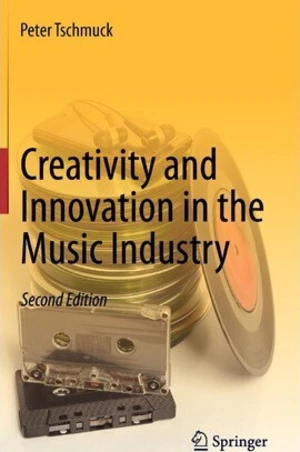Why did jazz become a dominant popular music genre in the 1920s and rock 'n' roll in the 1950s? Why did heavy metal, punk rock and hiphop find their way from sub-cultures to the established music industry? What are the effects of new communication technologies and the Internet on the creation of music in the early 21st century? These and other questions are answered by Peter Tschmuck through an integrated model of creativity and innovation that is based on an international history of music industry since Thomas A. Edison invented the phonograph in 1877. Thus, the history of the music industry is described in full detail. By discussing the historic process of music production, distribution and reception the author highlights several revolutions in the music industry that were caused by the
inference of aesthetic, technological, legal, economic, social and political processes of change. On the basis of an integrated model of creativity and innovation, an explanation is given on how the processes and structures of the present music industry will be altered by the ongoing digital revolution, which totally changed the value-added network of the production, dissemination and use of music. For the second edition, the author has reworked chapter 9 in order to include all the developments which shaped the music industry in the first decade of the 21st century - from Napster to cloud-based music services and even beyond.
více
Nejlevnější produkt
179,29 € | Knihy Dobrovsky | In stock
Máte ve vašem obchodě lepší produkt?
Nejlevnější produkt
179,29 € | Knihy Dobrovsky | In stock
Máte ve vašem obchodě lepší produkt?
K dispozici v
Co říkají obchody
Knihy Dobrovsky
Why did jazz become a dominant popular music genre in the 1920s and rock 'n' roll in the 1950s? Why did heavy metal, punk rock and hiphop find their way from sub-cultures to the established music industry? What are the effects of new communication technologies and the Internet on the creation of music in the early 21st century? These and other questions are answered by Peter Tschmuck through an integrated model of creativity and innovation that is based on an international history of music industry since Thomas A. Edison invented the phonograph in 1877. Thus, the history of the music industry is described in full detail. By discussing the historic process of music production, distribution and reception the author highlights several revolutions in the music industry that were caused by the inference of aesthetic, technological, legal, economic, social and political processes of change. On the basis of an integrated model of creativity and innovation, an explanation is given on how the processes and structures of the present music industry will be altered by the ongoing digital revolution, which totally changed the value-added network of the production, dissemination and use of music. For the second edition, the author has reworked chapter 9 in order to include all the developments which shaped the music industry in the first decade of the 21st century - from Napster to cloud-based music services and even beyond.

